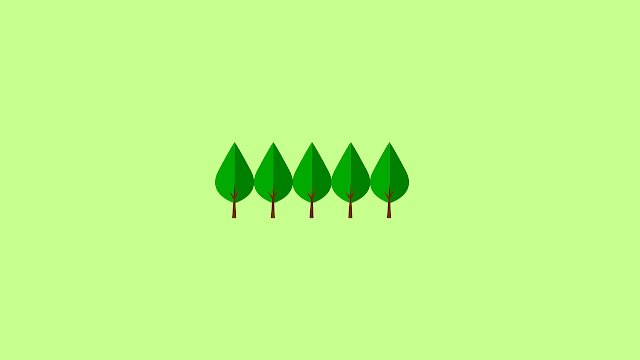by Michael Corthell
Paring it down. Finding out that you really don't need all this 'stuff'. But, being a minimalist doesn't mean that you are poor or have to live poorly. It is not a life of poverty.
As you can see below, minimalism is not a new idea. One of America's founding fathers and prolific over-achievers was spot on...
''There are two ways to increase your wealth.
Increase your means or decrease your wants.
Increase your means or decrease your wants.
The best is to do both at the same time.''
―Benjamin Franklin
''More and more people today are adopting a minimalist approach to life. They are cutting back on consumption and investing in experiences. They are turning away from being told what they need by insatiable media. Minimalism can be a nasty word in the age of high-impact advertising and glutinous consumerism. It still isn't cool to de-clutter and live with less—at least not yet.
Living with less movement is gaining momentum, however, it has taken some time to take root.''
Henry David Thoreau moved to a very small cabin on Walden Pond near Concord, Massachusetts over 170 years ago on July 4, 1845, Intent on living as simply as he could, Thoreau fit all his wants and needs into a dwelling the size of a storage shed.
''Simplicity, simplicity, simplicity!'' he exclaimed in Walden, his account of his two-year stay at the pond. ''I say, let your affairs be as two or three, and not a hundred or a thousand; instead of a million, count half a dozen, and keep your accounts on your thumbnail.''
Thoreau did mention on the very first page of Walden that he didn’t mean that his method was for everyone. He advised his readers to only ''accept such portions as apply to them.'' Like any pioneer, he was testing the limits of what was possible. He wanted to more clearly understand what the limits of simple living were.
''I wanted to live deep and suck out all the marrow of life,
to live so sturdily and Spartan-like as to put to rout all that was not life…''
to live so sturdily and Spartan-like as to put to rout all that was not life…''
―Henry David Thoreau
Are you looking for an abundant, joy-filled life? A less stressful life rich in an abundance of things that really matter? Yes, are you looking for a different kind of rich life? A LIFE that’s full of happiness, memories, laughter, and love? An existence that is calm full of contentment? Do you want to cherish things, and not be attached to them by a leash? Do you want your home to be a sanctuary and not a hoarder's heaven? Embrace minimalism.
Do you want a carefully crafted life, centered around purposely gathering valuable experiences and goals? Because that is minimalism. Living a life of minimalism gives us a way to more― more experiences, more of life's joy, with more purpose, more human connections, more not less independence, and more and more passion for life. Minimalism is the best kind of more.
If you will surround yourself with only the things you truly love, you can let the rest of it go. If it's not contributing to your happiness, you don't need it. Another article you might like is Positive Life Satisfaction.
What are the key benefits of becoming a minimalist?
You Will Spend Less By Choosing Just The Essentials.
You Will Experience Lower Stress
You, Will, Have A Home That's Easier To Clean
You Will Enjoy Increased Freedom
You Will Be Good To The Environment
You Will Be More Productive
You Will Teach By Example
You Will Be Able To Support Other Causes
You Will Be Able Own Higher Quality Stuff
You Yourself Will Be 'Lower Maintenance' (for someone else)
You Will Be Happier
You Will Do Work You Love
You Will Find Freedom From the Comparison Game (keep up with your neighbor)
You Will Have Time For The Things That Matter Most
You Will Make Your Home More Visually Appealing
You Will Not Be Tied to the Past
You, Will, Have More Room For Places In Your Heart
You Will Have More Opportunities for Rest
You Will Find Life Easier
You, Will, Live In A Smaller (less costly) Space
You Will Show The World What Is Important To You
All of these benefits are all available to you right now, and please realize that there is more than one way to get to the minimalist lifestyle. You don’t have to be privileged to be a minimalist, and you certainly don't have to do it overnight. For many folks, it takes years with many starts and stops.
There is no right way or even wrong way to do minimalism, but you will be able to live life your way―free.
Minimalism gives you freedom where the traditional way of working and living may not.
All of these benefits are all available to you right now, and please realize that there is more than one way to get to the minimalist lifestyle. You don’t have to be privileged to be a minimalist, and you certainly don't have to do it overnight. For many folks, it takes years with many starts and stops.
There is no right way or even wrong way to do minimalism, but you will be able to live life your way―free.
Minimalism gives you freedom where the traditional way of working and living may not.
____________
The Minimalists on Minimalism
Joshua Fields Millburn and Ryan Nicodemus, better known to their 2 million readers as The Minimalists, are the authors of several bestselling books, including EVERYTHING THAT REMAINS. They spoke at TEDxWhitefish about minimalism, the value of community, and discovering what makes people rich. For more info about The Minimalists visit http://theminimalists.com

Comments
Post a Comment